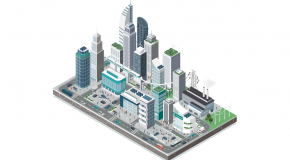In Bangalore's extraordinary transition from a dusty town to a thriving IT hub that is home to more than 600,000 IT executives, Infosys has played a leading role. The IT services company has developed a large campus at Electronics City—based on Microsoft's in Seattle—that is one of India's largest industrial parks, and representatives from the company sit on many city and state committees.
However, T.V. Mohandas Pai, a member of the board at Infosys, believes that the urban policymakers should be playing a greater role in attracting other businesses to the city. "We want the city to market Bangalore and improve its image so that more and more companies in similar industries will come and settle here, which creates an ecosystem," he says. "This ecosystem generates vibrancy and innovation."
He adds that developing the softer side of city liveability has also yet to receive sufficient attention. "The focus in Bangalore has not been on quality of life so far in terms of arts and culture," he says. "The city is not doing as much as it should in that respect." However, for the company, influencing the development of the city means striking a careful balance between stepping up and holding back. "We don't want to be seen as having a disproportionate share of the city's attention," says Mr Mohandas Pai.
"The city has to articulate how it's going to grow and then invite stakeholders to participate." At the same time, he believes that before this can happen, Bangalore needs stronger governance and leadership. "The challenge in Bangalore is that we don't have a permanent city administration or an executive mayor," he says. "We have to get the legal structures in place."
While this may be a source of frustration for Infosys, the phenomenon is not an unusual one. Ultimately, many city administrations still require the approval of state and national governments before they can act. Mr Mohandas Pai believes this needs to change. "Unless you fix the governance model, dramatic improvement cannot take place," he says.




